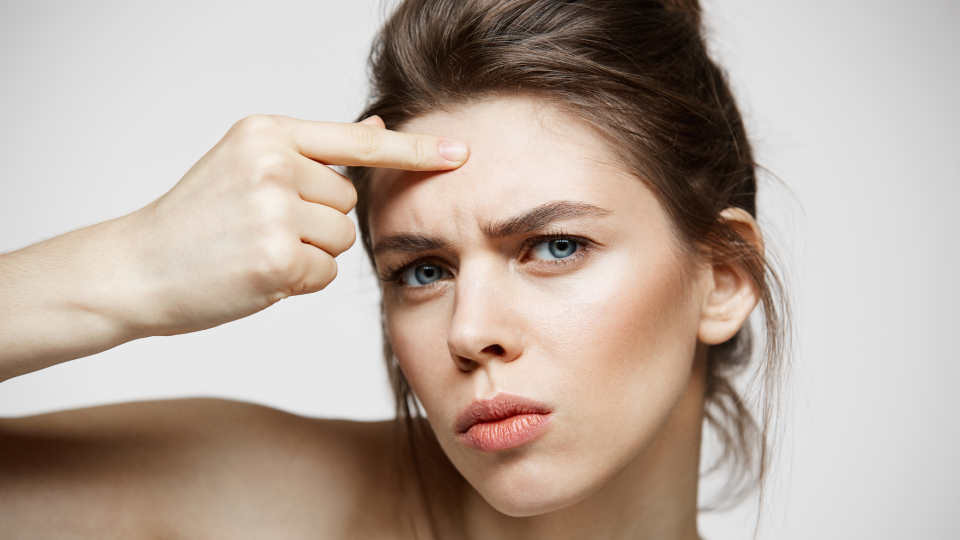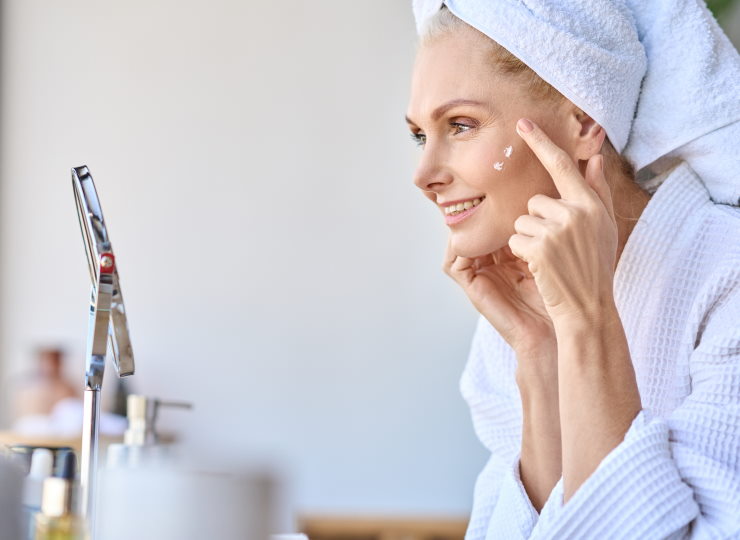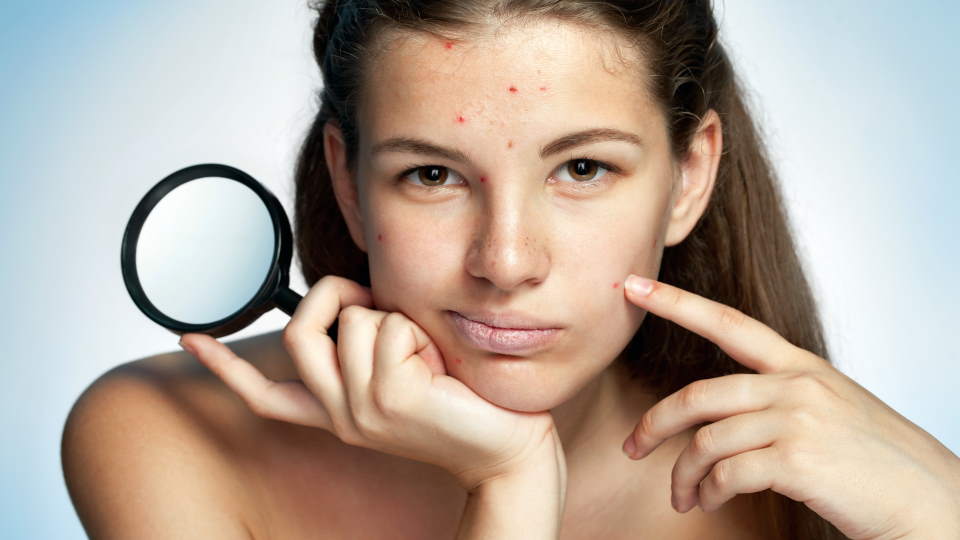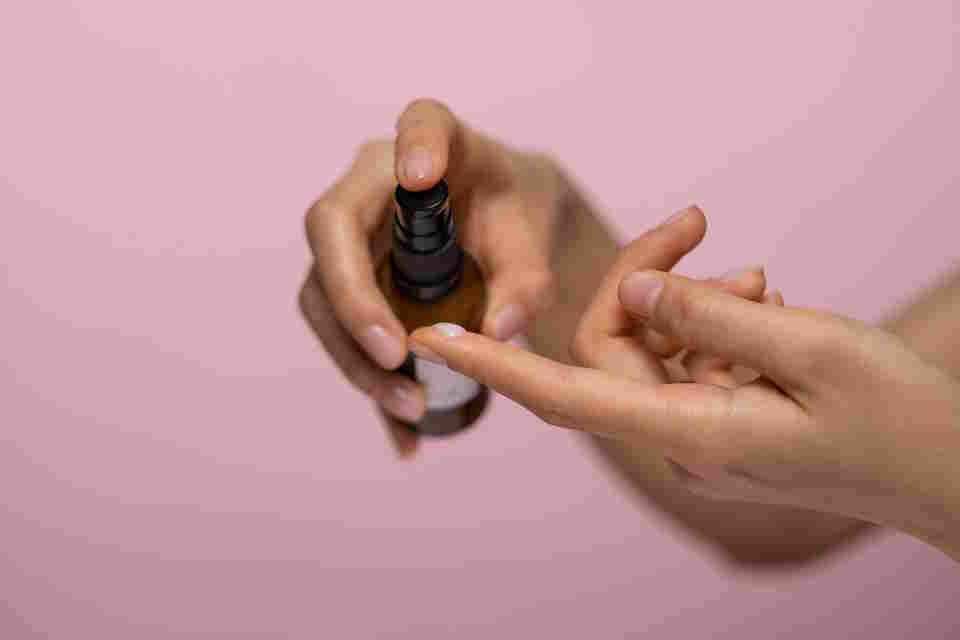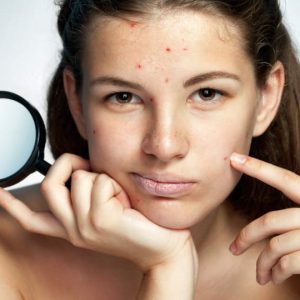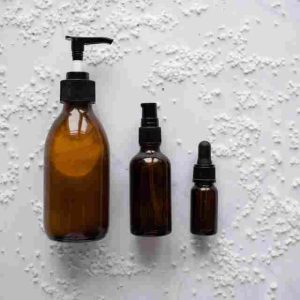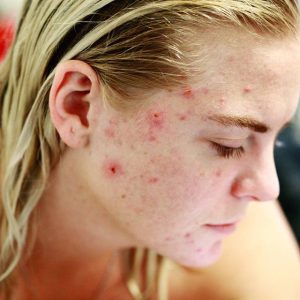Have you ever experienced peeling skin on your face after using skincare products? It can be quite alarming and leave you wondering if you’re doing something wrong. However, peeling skin on the face can actually indicate that your skincare routine is working. It’s a sign that dead skin cells are shedding and making room for new, healthy skin. But, as with any skincare concern, there are important things to consider. We’ll explore why your skin might be peeling after skincare, whether it’s good or bad, and how to take care of your skin during this process. So, let’s dive in!
Introduction
If you’ve noticed that your skin is peeling on your face after a skincare routine, don’t worry, as you’re not alone. Many people experience this issue and it can be caused by a variety of factors. We’ll explore the reasons why your skin is peeling and what you can do to alleviate it.
Over-exfoliation
One of the most common causes of skin peeling after skincare is over-exfoliation. Exfoliating helps to remove dead skin cells and promote cell turnover, but doing it too often or with products that are too harsh can result in skin irritation and peeling. If you’re experiencing peeling skin after using an exfoliating product, consider reducing the frequency of use or switching to a gentler formula.
- Limit exfoliation to once or twice a week
- Choose an exfoliating product that is appropriate for your skin type
- Avoid exfoliating if you have an open wound or active acne
Allergic reaction
Another possible cause of skin peeling after skincare is an allergic reaction. Some skincare products contain ingredients that may trigger an allergic reaction in some individuals. If you suspect that your skin may be reacting to a certain product, discontinue use immediately and consult with a dermatologist. They can help you identify the offending ingredient and recommend alternative products.
| Allergic reaction symptoms | Common irritants in skincare products |
|---|---|
| Hives, rash, itching, redness, peeling | Fragrances, preservatives, sulfates, propylene glycol, parabens |
Dry skin
If your skin is naturally dry, it may be more prone to peeling after using skincare products. This is because dry skin lacks the natural oils that help to keep the skin hydrated and protected. Using a moisturizer after cleansing and exfoliating can help to prevent dryness and keep your skin soft and supple.
- Choose a moisturizer that is appropriate for your skin type
- Apply moisturizer immediately after cleansing or exfoliating
- Reapply moisturizer as needed throughout the day
Is Peeling of Face Skin Good?
Peeling of face skin is a common skincare concern that many people experience, especially during the colder months or when trying out new products. Although it may seem alarming, peeling of face skin is not always a cause for concern. In fact, it can sometimes be a good thing for your skin.
One of the benefits of peeling skin is that it can help to remove dead skin cells and reveal newer, healthier skin underneath. This can give your complexion a brighter, more youthful appearance. Additionally, peeling of face skin can also help to unclog pores and prevent breakouts, as dead skin cells can often contribute to the buildup of oil and dirt on the skin.
- However, it is important to note that not all peeling of face skin is good.
- If you are experiencing excessive peeling or if it is accompanied by redness, itching, or other signs of irritation, it may be a symptom of a more serious skin condition such as eczema or psoriasis.
- In these cases, it is best to consult with a dermatologist to determine the underlying cause of the peeling and to obtain appropriate treatment.
In order to promote healthy skin peeling, it is important to take proper care of your skin. This includes exfoliating regularly to remove dead skin cells, using moisturizer to keep your skin hydrated, and avoiding harsh skincare products that can cause irritation and damage to the skin barrier.
| Top tips for promoting healthy peeling of face skin: |
|---|
| 1. Exfoliate regularly with a gentle scrub or chemical exfoliant |
| 2. Use a moisturizer to keep your skin hydrated |
| 3. Avoid harsh skincare products that can cause irritation and damage to the skin barrier |
| 4. Consult with a dermatologist if you are experiencing excessive peeling or if it is accompanied by redness, itching or other signs of irritation |
Should I Exfoliate if My Skin Is Peeling?
Exfoliation is a crucial aspect of taking care of your skin. It helps remove dead skin cells, unclogs pores, and leaves your skin feeling refreshed and rejuvenated. However, if your skin is already peeling, it’s natural to wonder whether you should exfoliate or not. In this blog post, we’ll answer this question and unravel the mysteries surrounding exfoliation and peeling skin.
Firstly, it’s important to understand why your skin is peeling. There are a few reasons why this could be happening. It could be due to overexposure to the sun, dry weather, harsh chemicals, or certain skin conditions. Regardless of the reason, your skin is already compromised, and the last thing you want to do is cause further damage by exfoliating.
- If you have dry, sensitive, or damaged skin, it’s best to avoid exfoliation until your skin has healed.
- If your skin is peeling due to sunburn or a chemical burn, exfoliation can be painful and damaging.
- If you have a condition like eczema or psoriasis, it’s best to speak to a dermatologist before exfoliating.
However, if your skin is peeling due to dryness and there are no signs of irritation or damage, gentle exfoliation can help remove dead skin and promote cell turnover. But, it’s crucial to choose the right exfoliant and technique for your skin type. Opt for a gentle chemical exfoliant like lactic acid or glycolic acid instead of physical exfoliants like scrubs.
| Do’s | Dont’s |
|---|---|
| Use a gentle chemical exfoliant like lactic or glycolic acid | Use harsh physical scrubs |
| Exfoliate gently | Overdo it with exfoliation |
| Moisturize your skin after exfoliating | Skip moisturizing after exfoliating |
Is Peeling Skin Good for Acne?
Acne can be a frustrating and embarrassing condition for many people, and it’s no surprise that they try various methods to combat it. One common method is to use products that cause skin peeling, as it is believed to help reduce the appearance of acne. But the question remains: is peeling skin good for acne?
Peeling skin is a natural process in which the outer layer of skin sheds to reveal newer, healthier skin underneath. This process helps to remove dead skin cells and unclog pores, which are two factors that contribute to acne. However, if the skin is peeling too much or too often, it can cause irritation and inflammation, which can make acne worse.
- Exfoliating the skin gently using a scrub or chemical exfoliant, such as alpha hydroxy acids (AHAs) or beta hydroxy acids (BHAs), can help to remove dead skin cells and unclog pores.
- However, it’s important to use these products in moderation and follow the instructions carefully to avoid over-exfoliating the skin.
| Pros of Peeling Skin for Acne | Cons of Peeling Skin for Acne |
|---|---|
| Helps to unclog pores Removes dead skin cells Can reduce the appearance of acne |
Can cause irritation Can make acne worse if overdone Can lead to scarring or discoloration |
Why Is Salicylic Acid Making My Skin Peel?
If you suffer from acne-prone skin, you’ve probably heard of salicylic acid. It’s a popular ingredient in many skincare products that claim to combat acne, but sometimes it can make things worse. One of the side effects of salicylic acid is skin peeling. We’ll explore why this happens and what you can do about it.
What is salicylic acid?
Salicylic acid is a beta-hydroxy acid that is often used to exfoliate the skin. It works by dissolving the substance that holds dead skin cells together, allowing them to be easily sloughed off. In addition to exfoliating, it also has anti-inflammatory properties and can help to unclog pores.
Why does it make skin peel?
Salicylic acid can cause skin peeling because it is a strong exfoliant. When applied to the skin, it can loosen the bonds between dead skin cells, causing them to slough off. While this can be beneficial for removing dead skin cells and smoothing out rough patches, it can also cause irritation and peeling if used too frequently or in too high of a concentration.
What can you do about it?
If you’re experiencing peeling from salicylic acid, there are a few things you can do to help alleviate the symptoms. Firstly, you may want to reduce the frequency of use or switch to a lower concentration product. Secondly, make sure to use a gentle moisturizer to help soothe and hydrate the skin. Finally, it’s important to wear sunscreen, as peeling skin can be more susceptible to sun damage.
